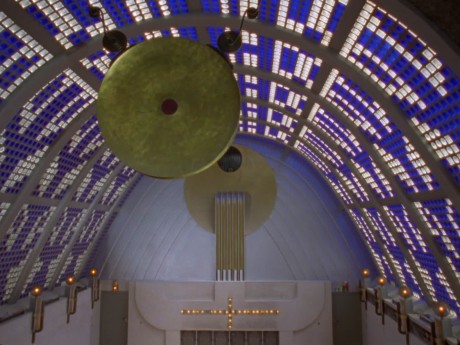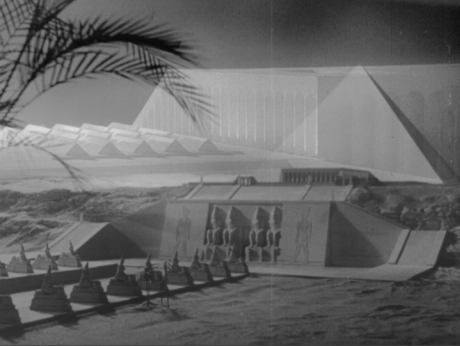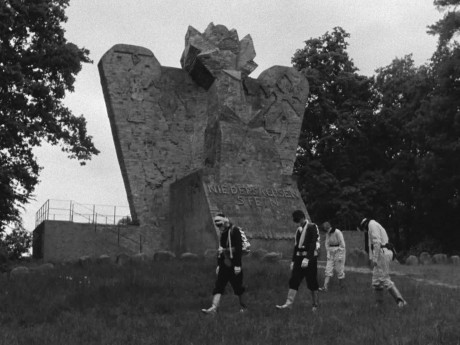Haus Atlantis at Große Kunstschau, Worpswede
June 19th - October 23rd 2016
The Israeli filmmaker and artist Karen Russo (b. 1974) lives in London. For her exhibition Haus Atlantis at Große Kunstschau, she has produced a series of works engaging with the mystical Nordic architecture of Bernard Hoetger, which will be shown here for the first time from June 19th to October 23rd, 2016.
Karen Russo is interested in moments in history when the mythologies and artifacts of earlier times are fused with political ideologies to dangerous effect. In her short film Haus Atlantis, she juxtaposes the historical agenda of the building of the same name, designed by Hoetger in 1931 for the Böttcherstraße in Bremen, with modern-day images of the building, which is now a hotel. There are also images of the Teufelsmoor and the collection of prehistoric and ancient artifacts belonging to the art patron Ludwig Roselius, which Russo weaves into a sort of archaeological sci-fi story. In her vision of the future, a natural disaster has caused the oceans to dry up, and the survivors of a former coastal city suffer from a strange »seasickness« that causes them to lose touch with reality and come to believe that they once lived in Atlantis. Russo forms synchronous connections between the images and the text, showing how, over time, contexts can be subjectively imposed on history through a kind of historicising piracy. Russo also places herself in the role of utopian world creator. Inspired by Hoetger’s Expressionist work and Anton Kutter’s 1939 film Germanen gegen Pharaonen (Germans versus Pharaohs)—in which self-styled historians discuss the possibility that the Egyptian pyramids were of Germanic origin—she recontextualises this material through the unexpected juxtaposition of images. She depicts Hoetger’s Niedersachsenstein in a desert landscape or takes us on a 16mm film-tour of a recreated model of Hoetger’s never-realized TET-City, which she interweaves with images of the pharaonic cities from Kutter’s fictional documentation.
Karen Russo’s work expresses a fundamental skepticism regarding ideology, utopian visions, and any belief in being a chosen people. Her work examines how history is written from collective memory and what motivations are thereby implicated. Russo refers indirectly to the foundational myths of her homeland, Israel, such as the continuing conflicts over the Temple Mount in Jerusalem. Her work serves as a warning, albeit a playful one, against the conjoining of mysticism and politics. This exhibition offers a critical examination of the legacy of the Expressionist movement of the 1920s and 1930s.
http://www.worpswede-museen.de/en/summer-2016the-r...
http://kh-worpswede.de/en/ongoing-upcoming/karen-r...


